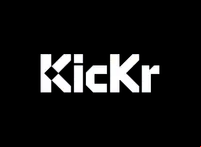When you redeem cash prizes, you might wonder if you have to pay taxes on Kickr. The short answer is yes—but Kickr taxes only kick in when your prize redemptions reach $600 or more. x5e5f
My guide will provide knowledge of federal and state taxes and how to correctly report your redemptions. If you’re unfamiliar with Kickr, you’ll learn a bit about how it works, what games and sports you can bet on, and a lot more. I’ll also share tips on how to make filing your taxes smoother.
4 Free Bucks + 150,000 Bits
Kickr Highlights
- Free 150,000 Bits and 4 Bucks welcome package
- Extensive coverage of major sports categories
- Competitive odds with a payout of up to 6x your bet
A quick intro to Kickr 3q5w4m
Kickr is a social sportsbook and casino launched in 2013. As you’ll see in my Kickr review, the social sportsbook has its own unique virtual currency system that uses Bits and Bucks instead of real money.
| Sweeps Casino Name |
Kickr |
| Launch Year |
2023 |
| Welcome Bonus |
150,000 Bits + 4 free Bucks |
| Virtual Coins |
Bits (for play and betting) Bucks (for prize redemptions) |
| Prize Redemption |
Yes |
| Tax |
Yes |
| Tax Threshold |
$600 in total redemptions per year |
You can only get Bucks for free, but when you play using them and win, you can eventually redeem them for cash prizes. Does Kickr charge taxes on these prizes? The social betting site doesn’t itself charge any taxes, but prize redemptions are treated as taxable income by the IRS, even though you’re not wagering real money.
Kickr: Pros and Cons
- No direct tax deductions by Kickr
- Clear legal compliance in 46+ states
- Various betting markets and casino gaming options
- Complex self-reporting requirements
Do you pay taxes on Kickr? 4vr37
Yes, but Kickr taxes aren’t charged or deducted directly on the site. Instead, the IRS treats redeemed prizes (via Bucks) as taxable income. Federal law mandates reporting all worth $600 or more, including gift cards or cash equivalents from social casinos. However, tax laws vary in the different Kickr legal states, which makes it important to check the local rules where you live.
For federal tax purposes, even if you redeem less than $600, you are still legally required to report your winnings. The IRS may not automatically track smaller redemptions, but failing to report them could lead to issues if you are audited.
4 Free Bucks + 150,000 Bits
T&Cs and 18+ apply
Get Bonus
Social Betting No Deposit
4 Free Bucks + 150,000 Bits
T&Cs and 18+ apply
Get Bonus
FREE 21 Bucks + 5,5 Million Bits for $9.99
T&Cs and 18+ apply
Get Bonus
How much do you pay in Kickr taxes? l3s43
Now that you know that Kickr taxes are something you need to consider, how much do you actually have to pay? Well, in of federal tax, you need to pay 24% of your total annual redemptions worth $600 or more. When it comes to state taxes, the amount varies. For example, you pay 6.75% in Iowa and 20% in Tennessee.
To put these figures into perspective, redeeming $1000 in prizes means paying $240 federally on top of your state-specific amount. However, if your state has a lower or no tax rate on winnings, you may owe less. Some states even allow deductions or exemptions for small prize amounts, so it’s very important to check your local tax laws.
Does Kickr charge taxes? 556a6d
No. Kickr explicitly states that bettors are solely responsible for any taxes. Kickr taxes only apply when you redeem prizes, with Bits bets having no tax implications. The social sportsbook does not automatically deduct taxes from your redemptions, nor does it issue W-2G forms like traditional gambling platforms. Instead, players must self-report their earnings when filing their taxes.
![Kickr Social Casino Bonus]()
Sign up for Kickr and claim your welcome offer
![Kickr Social Casino Play for Fun]()
Redeem real prizes at Kickr
How to pay tax on Kickr 4q3z2m
So, at this point, you know that you have to pay tax on the prizes you redeem on new social casinos. But how exactly do you pay taxes on Kickr prize redemptions? Here’s my step-by-step guide:
Step 1: Track Your Redemptions 16qe
Monitor your Bucks-to-prizes history in your Kickr . Save redemption confirmations, email receipts, and bank statements. Consider using ing software or spreadsheets to organize your records for easier reporting at tax time.
Report winnings under “Other Income” on Schedule 1. Unlike regular sportsbooks, Kickr won’t issue a W-2G. Keep copies of your records in case of an audit. If you win large amounts, consulting a tax professional may be helpful.
Step 3: Calculate State Obligations 5e6h4
Use your state’s tax rate for supplemental income. Some states exempt small amounts– local laws to determine whether additional tax payments are required. If your state requires estimated tax payments, be sure to submit them to avoid penalties.
Kickr Social Betting Promo
4 Free Bucks + 150,000 Bits
Tips to make the Kickr taxes process smoother 1f1xq
Handling taxes on Kickr winnings doesn’t have to be stressful. By staying proactive, you can avoid penalties and streamline tax season. Here are three essential steps I use to make the process easier.
Keep a spreadsheet of all redeemed Bucks, along with dates and prize values. Use tax software or an ing app to stay organized. Regular tracking helps ensure accurate reporting and minimizes the risk of IRS audits. Having proper records will also make filing easier and prevent potential discrepancies.
💰 Set Aside Tax Funds in Advance
Since taxes aren’t withheld, it’s smart to set aside 24% of every redemption for federal taxes plus an estimated amount for state taxes. This prevents financial strain when tax season arrives. Creating a dedicated savings for tax funds can help ensure you have enough set aside.
🧑💼 Consult a Tax Professional for Large Wins
If you redeem high-value prizes frequently, a tax advisor can help optimize deductions, clarify state tax rules, and ensure full IRS compliance. They can also provide guidance on quarterly estimated payments. Tax professionals can also help you understand any exemptions or credits you may qualify for.
Kickr Tax Obligations: Key Takeaways 4e1b10
Understanding and managing your Kickr taxes is essential if you want to avoid potential issues with the IRS. While Kickr itself doesn’t handle tax deductions, you’re responsible for reporting all prize redemptions of $600 or more annually.
to track your redemptions carefully, set aside the necessary 24% for federal taxes, plus any state-specific amounts, and maintain detailed records of all your transactions. Following the guidelines outlined in this guide and staying proactive with your tax planning will help you enjoy betting at Kickr while remaining fully compliant with tax regulations.
4 Free Bucks + 150,000 Bits
Kickr taxes FAQ 553d47
💰 Do you have to report redemptions on Kickr under $600? 1u503f
Yes, you are legally required to report all Kickr prize redemptions to the IRS, regardless of the amount redeemed. While smaller amounts may not be automatically tracked, failing to report them could lead to issues during an audit.
📑 How do I prove my Kickr redemptions if I get audited? 5f5ml
Keep detailed records of all redemptions, including email confirmations, bank statements, and screenshots of your history. You can maintain a spreadsheet tracking dates, amounts, and types of prizes redeemed to your tax filings.
📉 Can I deduct losses on Kickr from my taxable winnings? f512k
Unlike traditional gambling, Kickr gameplay using Bits and Bucks isn’t considered real money wagering. For example, Bucks are only available via bonuses like the Kickr referral codes. As such, losses cannot be deducted against your prize redemptions. This means you have to report the full value of all redeemed prizes as taxable income.

![Bet365]()
![Betway]()
![Unibet]()
![Betfred]()
![Caesars]()
![BetMGM]()
![DraftKings]()
![FanDuel]()
![Borgata]()
![Sugarhouse]()
![Crab Sports]()
![Tipico]()
![Barstool]()
![Fanatics]()
![Sporttrade]()
![Bet365]()
![Betway]()
![Unibet]()
![Betfred]()
![Caesars]()
![BetMGM]()
![DraftKings]()
![FanDuel]()
![Borgata]()
![Sugarhouse]()
![Crab Sports]()
![Tipico]()
![Barstool]()
![Fanatics]()
![Sporttrade]()
![Fliff]()
![Onyx Odds]()
![Get Prophet X]()
![Novig]()
![SportsMillions]()
![Legendz Casino]()
![Kickr]()
![Sportzino]()
![Real Prize]()
![Stake.us]()
![McLuck]()
![Sidepot]()
![Jackpota]()
![CrownCoinsCasino]()
![High5Casino]()
![MegaBonanza]()
![Legendz Casino]()
![Baba Casino]()
![MyPrize US]()
![Wow Vegas]()
![Casino Click]()
![Spree]()
![The Money Factory]()
![Real Prize]()
![Stake.us]()
![McLuck]()
![Sidepot]()
![Jackpota]()
![CrownCoinsCasino]()
![High5Casino]()
![MegaBonanza]()
![Legendz Casino]()
![Baba Casino]()
![MyPrize US]()
![Wow Vegas]()
![Casino Click]()
![Spree]()
![The Money Factory]()
![PlayStar]()
![Wheel of Fortune Casino]()
![BetMGM Casino]()
![DraftKings Casino]()
![Caesars]()
![PartyCasino]()
![Bet365]()
![Borgata]()
![888]()
![Golden Nugget]()
![Pokerstars Casino]()
![Ocean Online Casino]()
![Resorts Casino]()
![Mohegan Sun]()
![Hard Rock Bet]()
![PlayStar]()
![Wheel of Fortune Casino]()
![BetMGM Casino]()
![DraftKings Casino]()
![Caesars]()
![PartyCasino]()
![Bet365]()
![Borgata]()
![888]()
![Golden Nugget]()
![Pokerstars Casino]()
![Ocean Online Casino]()
![Resorts Casino]()
![Mohegan Sun]()
![Hard Rock Bet]()










































































